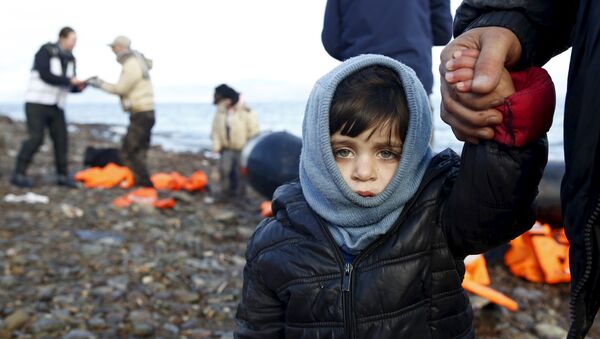The new agreement came into effect over the weekend, and stipulates that any migrant arriving in Greece will be sent to refugee camps in Turkey. In exchange, Ankara will receive financial aid and political concessions.
The deal also states that for every migrant sent to Turkey, one refugee within Turkey will be given asylum in the EU.
The deal is already facing heavy criticism from human rights groups, Amnesty International among them, for the arrangement’s "double-speak."
"The 'double-speak' this deal is cloaked in fails to hide the European Union’s dogged determination to turn its back on a global refugee crisis, and willfully ignore its international obligations," said Amnesty’s Director for Europe and Central Asia John Dalhuisen in a statement.
"Promises to respect international and European law appear suspiciously like sugar-coating the cyanide pill that refugee protection in Europe has just been forced to swallow."
Given Turkey’s deplorable human rights record, the treatment of refugees in Turkey is of principle concern.
"Turkey is not a safe country for refugees and migrants, and any return process predicated on its being so will be flawed, illegal and immoral, whatever phantom guarantees precede this pre-declared outcome," Dalhuisen said.
Iverna McGowan, the head of Amnesty’s EU office, echoed these sentiments, calling the deal "seriously legally and morally flawed."
"Turkey does not offer adequate protection to anyone," she said, adding that the living conditions for refugees in Turkey are "woefully inadequate."
Earlier this month, UN High Commissioner for Refugees Filippo Grandi expressed deep concern over the proposed deal.
"I am deeply concerned about any arrangement that would involve the blanket return of anyone from one country to another without spelling out the refugee protection safeguards under international law," he said.
The deal is meant, in part, to discourage migrants from making the dangerous trans-Mediterranean crossing into Greece, but, as of Monday, refugees in large numbers have continued making the journey.
"…If returns begin I believe it will act as a deterrent," Antonis Sofiadelis, head of coastguard operations on the island of Lesbos, said. "They won’t want to pay $1,000-2,000 to a smuggler.
"Everything depends on whether Turkey implements its part of the deal."





